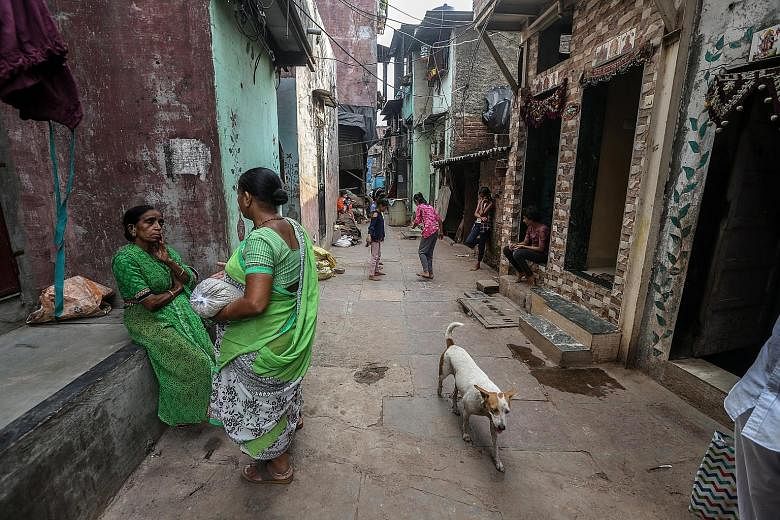India has overhauled its seven-decade-old tenancy law, in a move that the government hopes will add an estimated 10 million housing units to the rental market amid an urban housing crisis, and formalise the renting process.
But some landlords still believe the new law is tilted in favour of tenants and prefer to keep their properties locked.
The Model Tenancy Law, which aims to overhaul the 1948 Rent Control Act, smoothens the process of renting out commercial or residential properties. It requires a formal, written agreement between a landlord and a tenant who will negotiate and agree on the rent, caps security deposits that landlords can seek from tenants at two months' rent, and mandates the setting up of a three-tier adjudication mechanism involving a rent authority, a court and a tribunal to fast-track disputes within 60 days.
The law also states that a landlord cannot cut water and power supplies amid a dispute and cannot enter the premises for repairs without giving 24-hour notice to the tenant.
Under India's federal system, states have the final say on whether they will adopt the law in entirety or partially, just like the Rent Control Act that is implemented in different ways across the country.
Experts believe the new law, if uniformly implemented across the states, will bring major changes to the rental market.
"The biggest reason they are not in the market is landlords' fear that tenants may squat and they will have to go through a long and expensive legal process to get the property back.
"With the Model Tenancy Act they would have the confidence that any such issue would be resolved speedily," said Mr Saurabh Garg, co-founder and chief business officer of property site NoBroker.com
"This should unlock a large stock of these vacant houses and make the rental economy much bigger."
Some believe the new Act will also give greater confidence to non-resident Indians (NRIs) who have bought properties to rent out.
"For an NRI investor, it is a great assurance that the tenant of his property is bound by legal terms," said Mr Shajai Jacob, managing director and country head of ApnaComplex and chief executive of Middle East business at Anarock Property Consultants.
India is facing a property crisis, with a housing shortage increasing by 54 per cent to 29 million in 2018 from 18.78 million in 2012, according to a report released last December by the Indian Council for Research on International Economic Relations.
In cities like Mumbai, rent was capped for decades on older properties, and small disputes would often result in protracted legal battles. As a result, many people with a property to rent, particularly NRIs, kept their property locked.
Tenants, too, believed they were not fully protected and were at the mercy of landlords who demanded six months to a year of rent in advance as security deposit or would hike rents with little warning.
Still, not everyone is appreciative of the legislative changes.
Mr Sanjeev Mehra, president of Khan Market Traders Association, fears that under the new law, anyone who rents his properties will have the legal means to harass him. He objects to the written agreement which mandates that a landlord will have to take care of all repairs.
He added: "There is a need to simplify the laws. Ensure a written agreement but let landlords and tenants decide the terms."
There has also been political pushback. In Maharashtra, members of the ruling Shiv Sena have asked the state government not to implement the new law, saying existing laws were working well.
Removing rent control is a politically charged issue, particularly in a city like Mumbai.
In the crowded metropolis where slums coexist with luxury buildings, more than 600,000 tenants pay low rents, fixed decades ago under the Rent Control Act and state laws.
The downside to this is that owners often do not want to spend on maintenance, and collapses of old buildings, or low-quality housing known as chawls, do take place during monsoons.
"There are a lot of chawls and old buildings in Mumbai. Tenants staying in these chawls and buildings are from the middle and lower middle class and hence, they can't afford to pay rent as per market price," said Shiv Sena MP Rahul Shewale in a letter to Prime Minister Narendra Modi.
These pockets of resistance would continue to be a challenge, said experts, in India's roll-out of the tenancy law nationwide.

